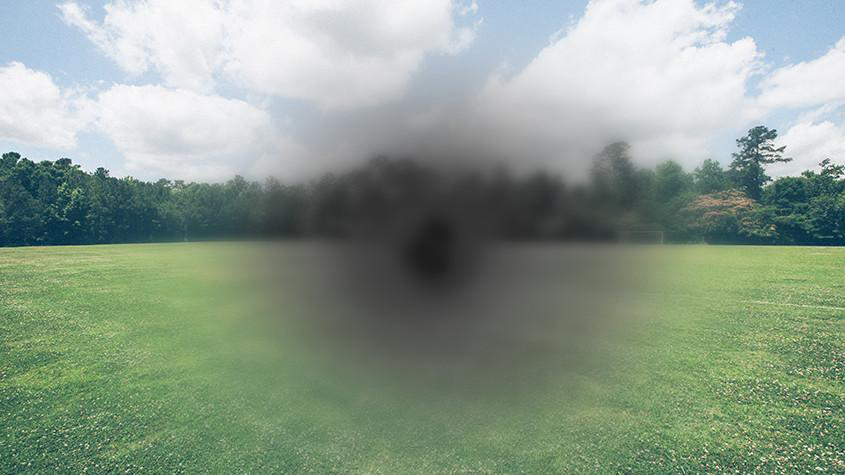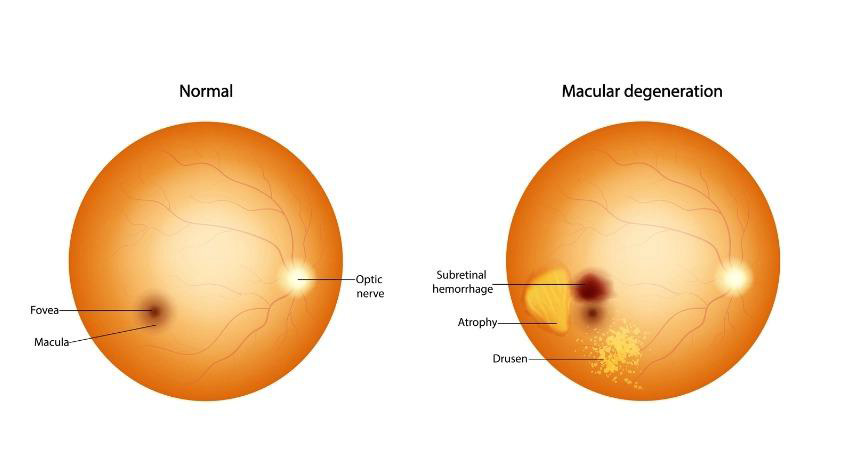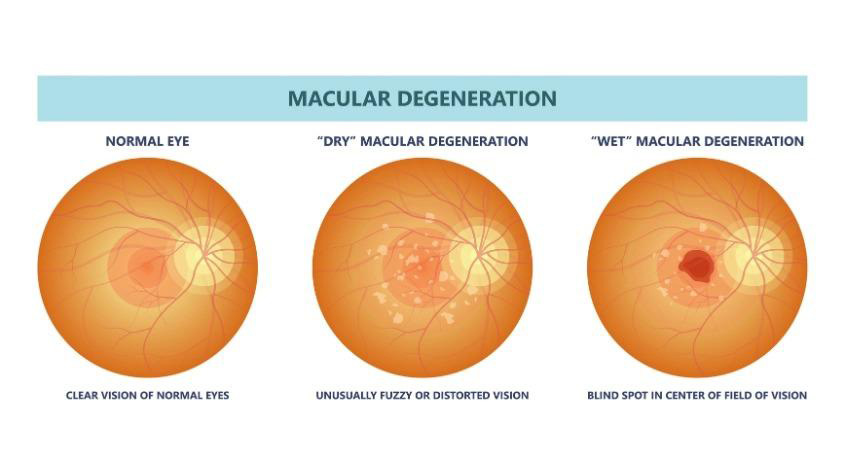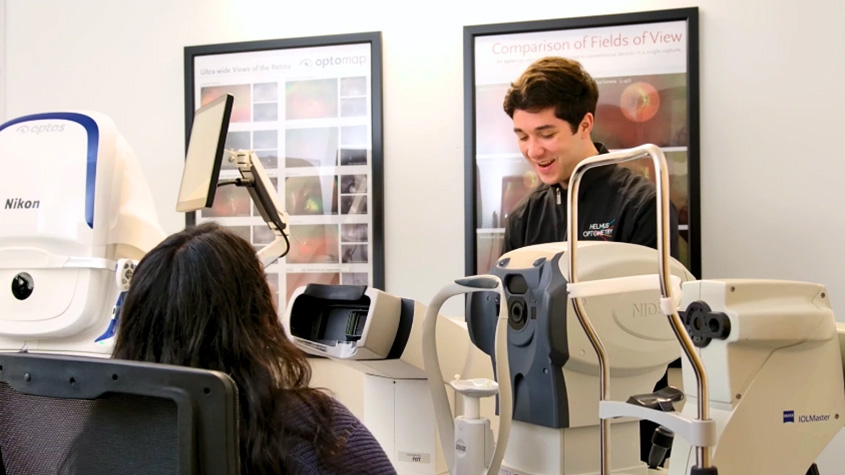
What is Macular Degeneration?
Macular degeneration, commonly referred to as age-related macular degeneration (AMD), is the single largest cause of sight loss in the developed world and affects more than 10 million Americans. It usually affects people over the age of 60, but has been known to affect those who are younger. It is a painless condition that usually affects both eyes with the loss being experienced in the central vision. It does not affect the peripheral vision, meaning that it does not cause total blindness.
What is the Macula?
The macula is the most sensitive part of the retina and is responsible for our central vision and what allows us to see fine details with clarity.

Understanding the Two Forms of Age-Related Macular Degeneration (AMD)
Wet AMD: Wet Age-Related Macular Degeneration is one variety of the condition in which abnormal blood vessels grow into the macula, leaking blood or fluid which then causes scarring and a rapid loss of central vision. Wet AMD can develop suddenly and rapid referral to a specialist is essential as it can be treated if caught quickly.
Dry AMD: Dry Age-Related Macular Degeneration is the most common variety of age-related macular degeneration and is a gradual deterioration of the retina as the cells die off over time and are not regenerated. Up to 15% of people with dry AMD go on to develop wet AMD, and so any sudden changes in your vision should be followed up with your optometrist as soon as possible.

Symptoms of Macular Degeneration
Macular degeneration affects each person differently, which means that it can be difficult to diagnose, particularly as you may not notice any change in your vision early on in the condition. However, as the cells deteriorate, you will start to see an increasing range of symptoms, including:
Distortion or bends in what should be straight lines (such as lampposts or door frames)
Dark spots in your central vision
Fading colors
Difficulty adapting from dark to light environments
Blurred vision
Objects may appear to change shape, size or color, or may move or disappear
Bright lights may be difficult to tolerate
Words may disappear while you are reading

How to Lower Your Risk of Experiencing Macular Degeneration
There is no clear reason how the process of macular degeneration begins. However, your risk increases if you have a family history of the condition, or if you are over 60.
Experts suggest that the way to minimize any potential risk is to ensure that you live a healthy, active lifestyle. You can do this by:
Quitting smoking
Eating a healthy, balanced diet with plenty of fruit and vegetables
Moderating your alcohol consumption
Maintaining a healthy weight
Getting regular exercise
There is also some limited research that suggests that eating leafy, green vegetables can slow the deterioration of vision in cases of dry AMD.

Treatment Options for Age-Related Macular Degeneration
There is currently no cure for Age-Related Macular Degeneration. In the case of Dry AMD, recommended treatments are intended to help patients make the most of their remaining vision. This can include using supports such as using magnifying glasses to help with reading.
Wet AMD can be treated with anti-vascular endothelial growth factor medication. This treatment is intended to stop additional blood vessels from developing – preventing your vision from deteriorating further.
Occasionally, laser therapy is recommended as a possible treatment for destroying abnormal blood cells, but this is only suitable for cases of Wet AMD. Approximately 1 in 7 patients are candidates for this procedure.
If you have any questions or concerns regarding macular degeneration, we highly recommend that you speak with your optometrist who will be happy to assist you.








